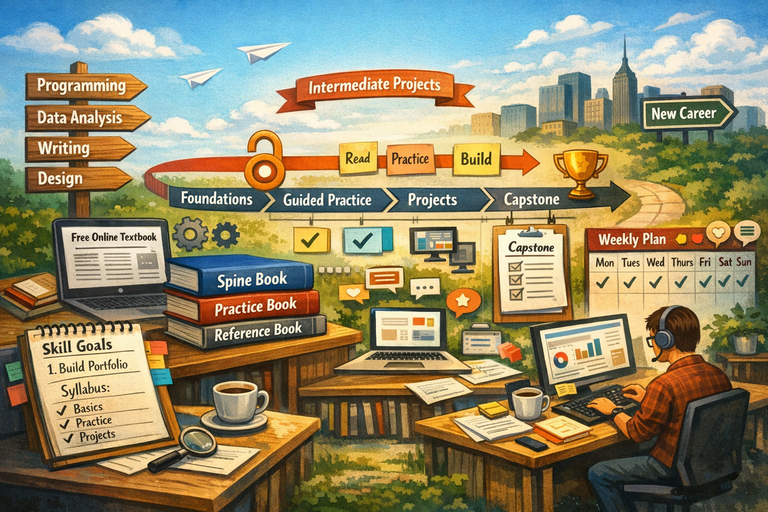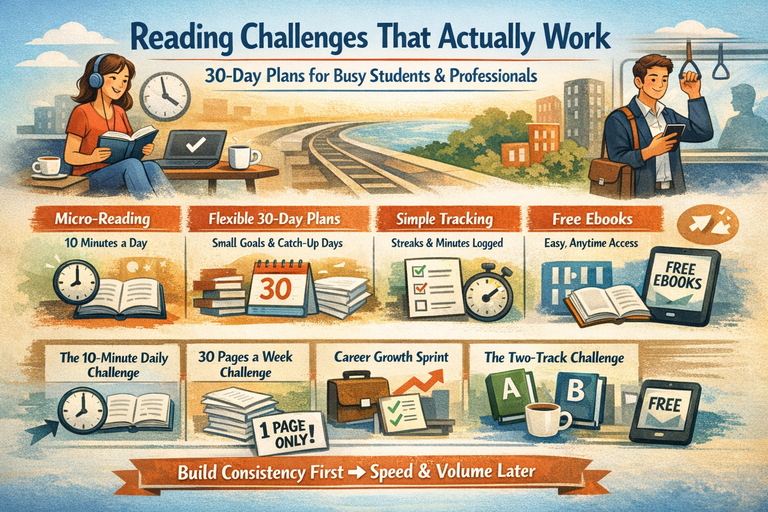Entrepreneurship in Modern Business Novels: Exploring the Business Mindset Through Fiction
In today's world, where startups are born daily and entrepreneurship is both a buzzword and a lifestyle, literature has kept pace by reflecting the spirit of enterprise in a compelling and relatable way. Modern business novels, often categorized under “junkybooks” for their mix of entertainment and insight, delve into the minds of entrepreneurs, exploring their motivations, challenges, triumphs, and failures.
These novels not only entertain but also serve as indirect blueprints of the entrepreneurial journey, highlighting the complexities of running a business and the human experiences behind boardroom decisions.
This blog post explores how entrepreneurship is depicted in modern business novels, why these narratives matter, and how they influence aspiring entrepreneurs and business thinkers alike.
The Shift in Business Literature
Historically, business was portrayed in literature as a backdrop—a necessary setting for drama rather than a central theme. Characters were lawyers, bankers, or factory owners, but their entrepreneurial endeavors were often sidelined by personal conflicts or romantic subplots.
However, in recent decades, there has been a notable shift. Business is no longer just the setting—it’s the story. The entrepreneur is the hero (or anti-hero), and the company becomes a living, breathing entity with its own character arc. This shift reflects societal changes—our fascination with startups, tech moguls, and self-made success stories. It also coincides with the rise of platforms like Junkybooks, which curate and celebrate literature that bridges the gap between business and fiction.
Entrepreneurs as Protagonists
Modern business novels often revolve around entrepreneurs as central characters. These protagonists are not just building companies—they’re battling insecurities, navigating ethical dilemmas, dealing with betrayal, and striving to balance ambition with integrity.
Take for instance a fictional novel like "Disruptor's Dilemma" (a representative of the junkybooks genre). In this novel, the protagonist, Maya, quits her six-figure job to launch a sustainable fashion startup. Through her journey, readers explore the challenges of pitching to investors, the loneliness of leadership, and the internal conflict of staying true to one’s values in a capitalist market. Maya's story captures the essence of modern entrepreneurship—purpose-driven, risk-heavy, and deeply personal.
Realism vs. Idealism
One of the strengths of modern business novels is their ability to portray both the romanticism and the reality of entrepreneurship. While movies and media often glamorize the startup lifestyle, novels tend to dig deeper. They explore burnout, financial stress, co-founder conflicts, and even mental health—issues that are seldom discussed in traditional business circles but are deeply relevant.
The novel "Pivot Point" follows a failed entrepreneur who, after a string of bankrupt ventures, mentors young founders to avoid his mistakes. Through his story, the novel unpacks the cost of constant hustle and the value of resilience. It’s these kinds of narratives that resonate with real-life entrepreneurs who understand that success is rarely linear.
Startups, Tech, and the Silicon Valley Dream
Another trend in business fiction is the focus on tech startups and the Silicon Valley ethos. With the rise of unicorn companies and billion-dollar IPOs, it's no surprise that novels often dramatize this world. Think flashy offices, venture capital drama, product launches, and ethical quandaries about data privacy and exploitation.
In the novel "Code & Capital", we follow two college dropouts who create a social media app that goes viral. Their journey mirrors that of real-life entrepreneurs like Mark Zuckerberg or Evan Spiegel. However, the novel goes a step further by exploring the moral complexities of growing too fast—issues like user addiction, algorithmic bias, and data misuse.
These themes are particularly relevant to readers of junkybooks—those who enjoy stories that are both thrilling and thought-provoking, with business elements deeply embedded in the plot.
Female Entrepreneurs in Business Fiction
An exciting development in business literature is the emergence of strong, complex female entrepreneurs. For decades, business fiction was male-dominated. Today, however, novels are spotlighting women who lead, innovate, and disrupt industries.
Books like "She Means Business" and "The Founder’s Fire" showcase women navigating venture capital sexism, juggling family and business, and leading with empathy and strategy. These novels don’t just tell women’s stories—they shift the narrative around what leadership looks like in the modern world.
For readers exploring junkybooks with a feminist lens, these novels are not only engaging but empowering. They reflect a reality where more women are taking the entrepreneurial leap and reshaping industries on their terms.
The Business Novel as a Learning Tool
While business novels may be fictional, they often incorporate real-world principles—lean startup methodology, business model innovation, marketing psychology, etc.—in an accessible format. This makes them valuable learning tools for aspiring entrepreneurs who prefer stories to spreadsheets.
Think of it as the narrative equivalent of a case study. Instead of dry analysis, you follow a character’s decision-making process, feel their doubt, celebrate their wins, and reflect on their mistakes. For many, this storytelling approach offers a deeper understanding of business than a textbook could.
Platforms like Junkybooks thrive on this crossover appeal—offering books that teach without preaching and inspire without intimidating. Entrepreneurs can draw practical insights while also enjoying a good novel.
Ethical Questions in the Business World
Modern business novels are also increasingly grappling with ethical questions. In an era of social impact and conscious capitalism, authors are using fiction to explore what happens when business goals clash with moral values.
For example, in the novel "Profit at All Costs", a startup founder faces the dilemma of accepting funding from a controversial investor. The story explores how far one should go in pursuit of growth, and whether every compromise is worth the cost.
These stories reflect real-world scenarios that many business leaders face, making them not just engaging, but also morally stimulating.
Junkybooks: Blending Entertainment and Education
The term junkybooks may sound casual, but it represents a growing genre of literature that’s smart, fast-paced, and culturally relevant. These books often blend the excitement of fiction with the depth of business insights. Whether you're curled up for a weekend read or prepping for your next startup pitch, junkybooks provide both entertainment and inspiration.
They’re particularly popular among young professionals, MBA students, and creative entrepreneurs who want to learn about business in a more engaging way. Rather than reading dense strategy books, they get the same insights through relatable characters and dynamic storytelling.
Conclusion: Business Stories That Inspire
Entrepreneurship is more than just profit and loss—it’s about vision, grit, human connection, and the journey of building something meaningful. Modern business novels capture this beautifully. Through fictional stories, they reflect real challenges and offer readers a deeper emotional and intellectual connection to the world of business.
As platforms like Junkybooks continue to champion this genre, we can expect more readers to discover the power of storytelling in shaping their entrepreneurial mindset. Whether you're a startup founder, a dreamer with a business idea, or simply a fan of compelling fiction, business novels offer more than entertainment—they offer perspective, empathy, and inspiration.
So next time you're looking for your next read, skip the dry manuals and dive into a business novel. You just might find the blueprint for your next big idea.







